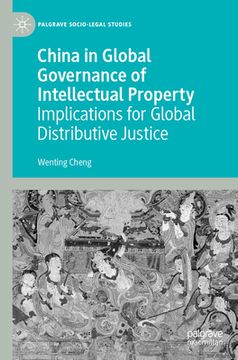Share
China in Global Governance of Intellectual Property: Implications for Global Distributive Justice
Wenting Cheng
(Author)
·
Palgrave MacMillan
· Paperback
China in Global Governance of Intellectual Property: Implications for Global Distributive Justice - Cheng, Wenting
Choose the list to add your product or create one New List
✓ Product added successfully to the Wishlist.
Go to My Wishlists
Origin: U.S.A.
(Import costs included in the price)
It will be shipped from our warehouse between
Friday, July 26 and
Tuesday, August 13.
You will receive it anywhere in United Kingdom between 1 and 3 business days after shipment.
Synopsis "China in Global Governance of Intellectual Property: Implications for Global Distributive Justice"
This book analyses how China has engaged in global IP governance and the implications of its engagement for global distributive justice. It investigates five cases on China's IP engagement in geographical indications, the disclosure obligation, IP and standardisation, and its bilateral and multilateral IP engagement. It takes a regulation-oriented approach to examine substate and non-state actors involved in China's global IP engagement, identifies principles that have guided or constrained its engagement, and discusses strategies actors have used in managing the principles. Its focus on engagement directs attention to processes instead of outcomes, which enables a more nuanced understanding of the role that China plays in global IP governance than the dichotomic categorisation of China either as a global IP rule-taker or rule-maker. This book identifies two groups of strategies that China has used in its global IP engagement: forum and agenda-related strategies and principle-related strategies. The first group concerns questions of where and how China has advanced its IP agenda, including multi-forum engagement, dissembling, and more cohesive responsive engagement. The second group consists of strategies to achieve a certain principle or manage contesting principles, including modelling and balancing. It shows that China's deployment of engagement strategies makes its IP system similar to those of the EU and the US. Its balancing strategy has led to constructed inconsistency of its IP positions across forums. This book argues that China still has some way to go to influence global IP agenda-setting in a way matching its status as the second largest economy.
- 0% (0)
- 0% (0)
- 0% (0)
- 0% (0)
- 0% (0)
All books in our catalog are Original.
The book is written in English.
The binding of this edition is Paperback.
✓ Producto agregado correctamente al carro, Ir a Pagar.

